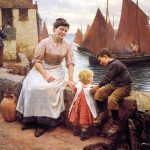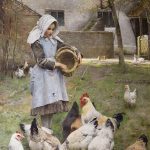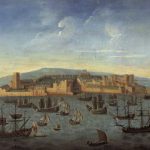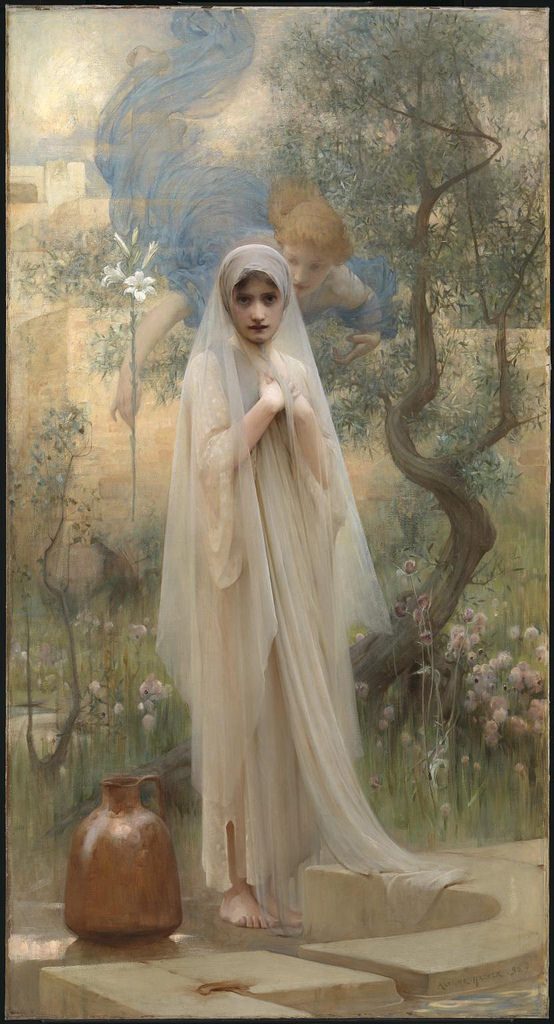
Arthur Hacker was a British painter who lived from 1858 to 1919. He was known for his contributions to the Victorian and Edwardian art scenes in the United Kingdom. Hacker’s work primarily focused on portraiture, genre painting, and historical scenes, and he was associated with the Newlyn School of artists in Cornwall.
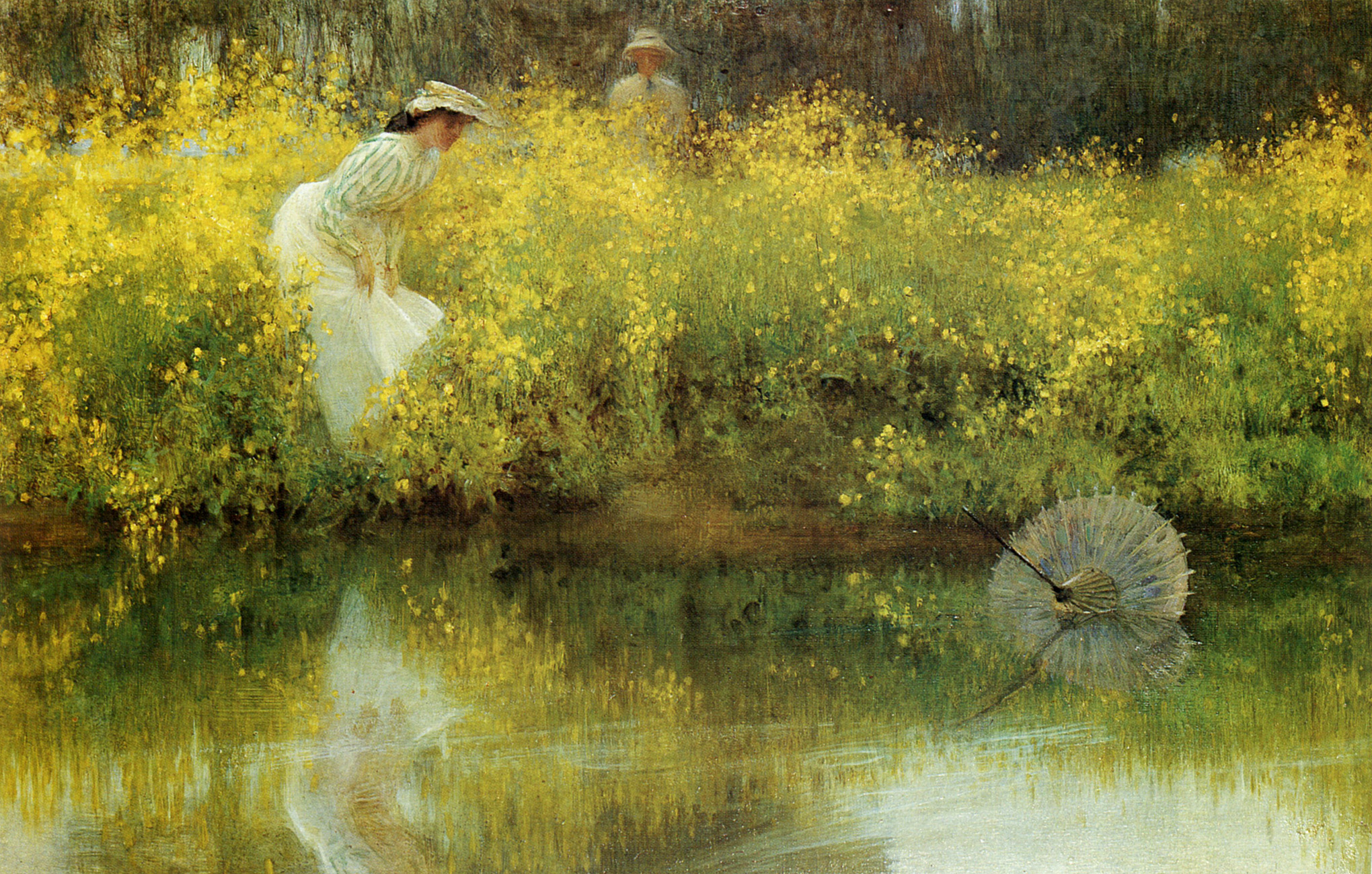
- Early Life and Education: Arthur Hacker was born in London in 1858. He showed an early talent for art and began his formal education at the Royal Academy Schools in London. There, he honed his skills and developed a deep appreciation for classical and historical subjects.
- Artistic Style: Hacker’s style was influenced by the prevailing academic and Victorian art traditions of his time. He often painted historical and literary scenes, creating detailed and well-executed works that reflected the tastes and interests of the era. His art also featured a romantic and sentimental quality that was characteristic of the Victorian period.
- Association with the Newlyn School: While Hacker is often associated with the Newlyn School, which was known for its plein air and naturalistic painting, his work was somewhat distinct from the school’s typical style. He visited Cornwall and was influenced by the coastal landscapes and the art community there but maintained his own unique approach to painting.
- Exhibitions and Recognition: Arthur Hacker exhibited his work at various prestigious venues, including the Royal Academy and the Royal Society of British Artists. He received recognition and awards for his art during his lifetime, further establishing his reputation as a talented painter.
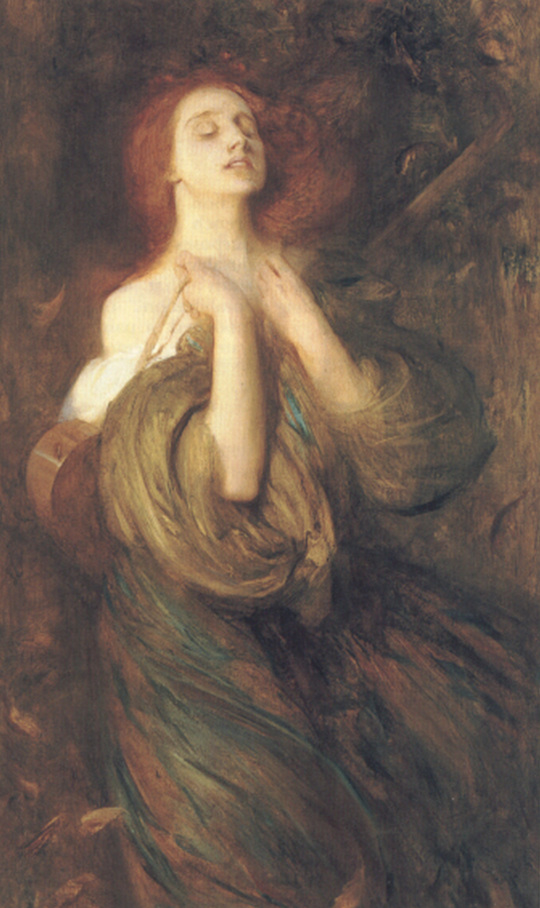
- Subject Matter: Hacker’s subjects varied widely, encompassing portraits, historical and literary scenes, and genre paintings. He had a particular interest in Shakespearean themes and often depicted scenes from Shakespeare’s plays in his art.
- Legacy: Arthur Hacker’s work represents a significant aspect of late Victorian and Edwardian art in Britain. While his style may not have been as avant-garde as some of his contemporaries, his paintings capture the spirit and sensibilities of the time. His historical and genre scenes offer a glimpse into the culture and aesthetics of the late 19th and early 20th centuries.
- Later Life: Hacker continued to paint and exhibit his work until his death in 1919. He left behind a body of work that continues to be appreciated by art enthusiasts and collectors today.
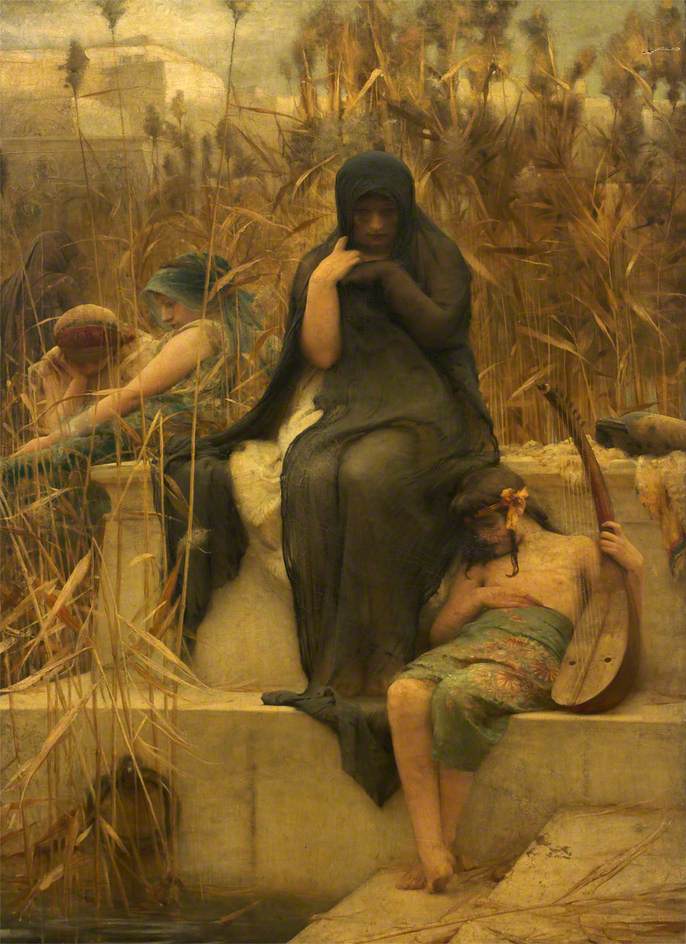
In summary, Arthur Hacker was a British artist known for his contributions to Victorian and Edwardian art. His works, which encompassed various subjects, reflected the artistic trends and sensibilities of his time, and his association with the Newlyn School added an interesting dimension to his career. Hacker’s legacy endures through his art, which provides valuable insights into the artistic and cultural landscape of late 19th and early 20th-century Britain.

